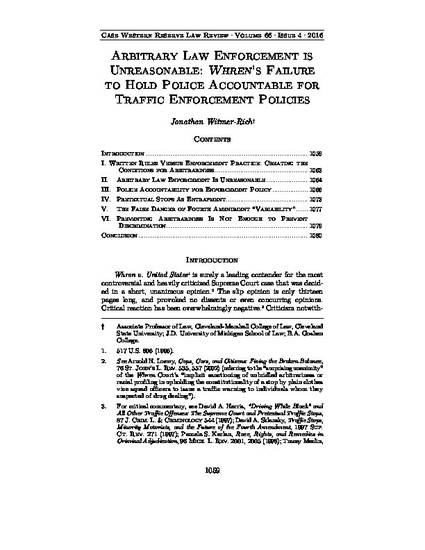
- arbitrary search and seizure,
- stop-and-frisk,
- probable cause,
- entrapment,
- traffic stops,
- Fourth Amendment,
- Whren
Whren v. United States is surely a leading contender for the most controversial and heavily criticized Supreme Court case that was decided in a short, unanimous opinion. The slip opinion is only thirteen pages long, and provoked no dissents or even concurring opinions. Critical reaction has been overwhelmingly negative. Criticism not withstanding, the Court has not retreated from Whren, but continues to repeat its core holding.
Part I frames the problem in Whren with a story. Part II sets forth the fundamental Fourth Amendment principle underlying this article—the prohibition against arbitrary search and seizure. Part III explains how arbitrariness applies to Whren, and to police enforcement policies. Part IV describes pretextual traffic stops as a form of entrapment. Part V addresses the Whren Court’s concern that the Fourth Amendment should not vary from place to place. Part VI notes that arbitrariness is distinct from discrimination, and acknowledges that ending arbitrariness would not necessarily end discriminatory law enforcement.
Available at: http://works.bepress.com/jonathan_witmer_rich/16/
